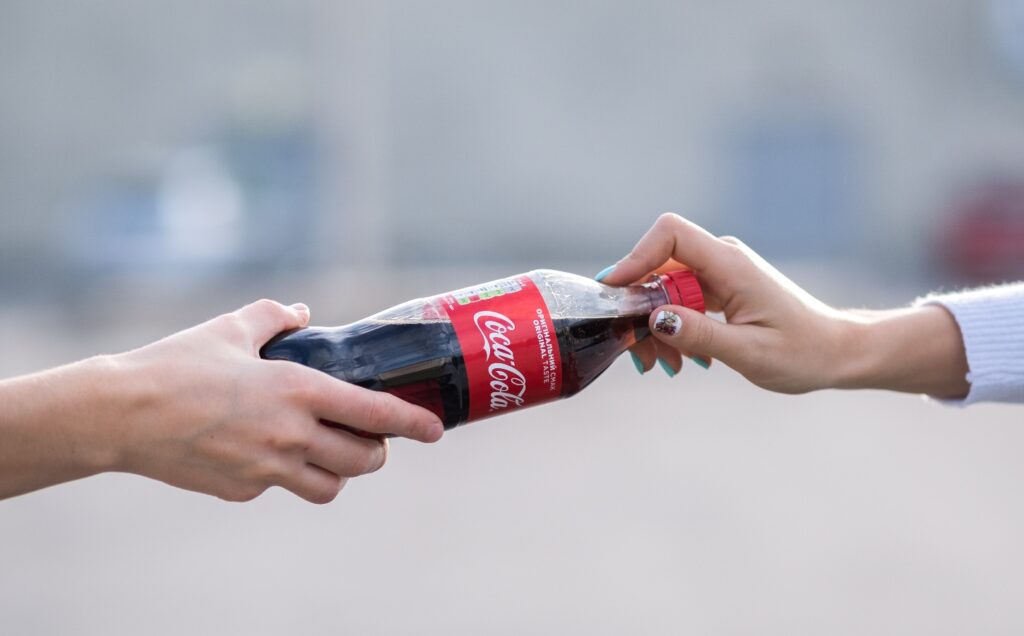The Coca-Cola Company has been announced as a supporter sponsor of the COP27 climate conference, taking place between November 6 and 18, in Sharm-El Sheikh, Egypt.
The announcement has surprised observers, due to Coca-Cola’s standing as the world’s largest corporate plastic producer. This is confirmed by Break Free From Plastic’s (BFFP) annual audits. Launched in 2016, BFFP is an anti-plastic global initiative. It aims to identify and call out companies that continue to create vast amounts of single-use plastic waste.
Coca-Cola made voluntary commitments in 2018 to collect and responsibly process one bottle for every one sold. In its audit, BFFP discovered that the company created more plastic waste than the second and third biggest polluters combined.
Greenpeace has expressed its confusion at Coca-Cola being brought in as a climate summit sponsor, calling the move “baffling.”
“This partnership with Coca-Cola negates the very objective of the climate COP,” John Hocevar, Greenpeace USA’s oceans campaign manager told PackagingInsights.
“This climate meeting is called the African COP, yet corporations like Coca-Cola, working hand in hand with the fossil fuel industry, are flooding Africa with plastic.”
‘Collective action against climate change’
Announcing the Coca-Cola sponsorship of the COP27 conference, Ambassador Achraf Ibrahim, local general coordinator of the event, alluded to shared visions of climate stewardship. He drew attention to the company’s Egyptian bottling partner, Hellenic Bottling Company, which announced a Net Zero by 2040 ambition. He also acknowledged similar plans from the soft-drinks giant.
“Through the COP27 partnership, the Coca-Cola system aims to continue exploring opportunities to build climate resilience across its business, supply chain and communities, while engaging with other private sector actors, NGOs, and governments to support collective action against climate change,” a spokesperson for Coca-Cola said.
However, critics of the move have been quick to express dismay at what they deem to be an unsuitable sponsor. Concern centers around Coca-Cola seemingly looking to improve its environmental image.
“As one of the world’s largest plastic polluters and a multibillion-dollar corporation with vast resources, Coca-Cola must stop greenwashing its image. Instead, it should be more ambitious by phasing out the amount of throwaway packaging it produces and doubling its current reuse and refill target of 25 percent to 50 percent by 2030,” Hocevar iterated.
Coca-Cola’s attempts at plastic reduction
In 2009, Coca-Cola unveiled its PlantBottle, containing around 30 percent plant-based materials. Touted as the world’s first recyclable PET plastic bottle, the company released less than 1,000 (900) of them.
Another attempt to shake up the conglomerate’s reliance on single-use plastic was announced last year. This time, in the form of a 100 percent plant-based bottle (except for the labels and caps) made from corn. Production numbers remain unclear. Emissions data for the bottles is also yet to be released.
Plastic pollution is fueling the climate crisis
The plastic industry, producing more than 380 million tons of material each year, is a major contributor to the worsening climate emergency.
Plastic waste sent for incineration produces more than 850 million tons of greenhouse gas emissions each year. The World Wildlife Fund states that we are on track to see this rise to 2.8 billion tons by 2050.
When discarded irresponsibly, the breakdown process of petrochemical-based plastic releases greenhouse gasses. Whether left in landfill or found in the oceans, plastic is heated by the sun. This allows a process of anaerobic decomposition to begin, releasing methane and ethylene in the process.
Both are efficient global warming emissions, with methane being at least 28 times more efficient in increasing the world’s temperature than carbon dioxide.
Alongside emissions, plastic waste is also responsible for significant biodiversity loss. An estimated eight million tons of plastic waste ends up in the world’s oceans. This can kill marine animals, either through choking, smothering, or microplastic poisoning, but also through habitat loss.
COP events falling short of the mark
The furor over Coca-Cola’s sponsorship is not the first instance of the COP disenfranchising climate activists.
Last year, the Glasgow-held COP26 drew ire for its decision to serve meat, including the most environmentally damaging variation, beef. At the time, Bernat Añaños, co-founder of Europe’s “fastest-growing” plant-based meat company Heura Foods, commented that it was akin to handing out cigarettes at a cancer conference.
Alongside menu disbelief, activists criticized the prolific use of private jets to fly high-profile attendees to the event.
This year, COP27 will host a plant-based food pavilion for the first time.






